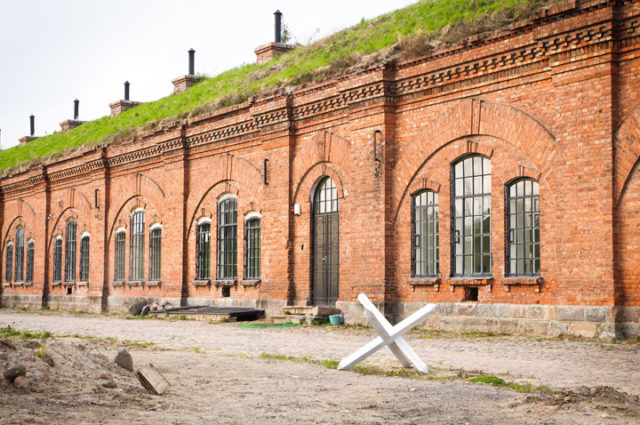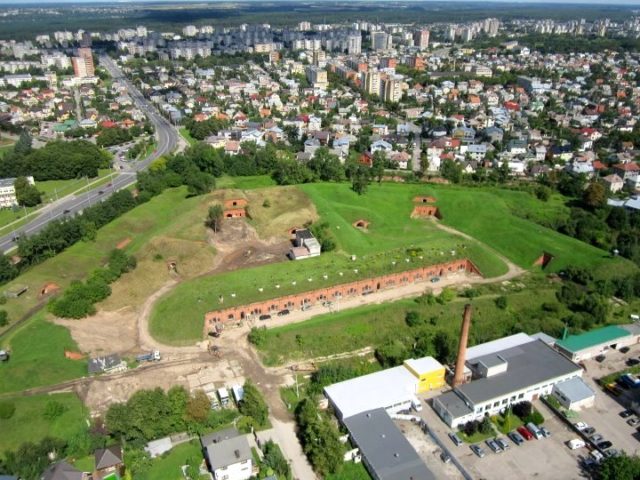Close to a hillside, and topped with luscious flowers and grass, it is easy to see why this scene is popular for weddings.
But the Kaunas’ Seventh Fort in Zaliakalnis, Lithuania, an 18-acre complex that dates back to 1882, happens to harbor a dark and devastating history as the Nazi concentration camp where around 5,000 Jews died during World War ll.
It was bought by Lithuanian non-profit organization Military Heritage Center in 2009, and is currently available for kids’ camps, conferences, and for parties.
This decision has been described as “disgraceful and distasteful” by the Holocaust commemoration group.

The establishment, initially a 19th-century defense fortification, charges €3.50 (£2.93) for adults and €1.75 (£1.46) for students, disabled people, and seniors.
Guided tours are offered to educate visitors about its legacy. As is stated on their website, in addition to being promoted as a ‘unique’ party venue, the goal of the Seventh Fort is to supply ‘visitors more knowledge about different historical periods.’
One of the activities that are promoted there is a themed military birthday party for a cost of €115, during which children can “search for treasure in a completely secret mission.” Not everyone is happy about the use of the Seventh Fort as a center for entertainment.
Jonny Daniels, the founder of From the Depths, a Holocaust memorization group in Poland, told the Jewish Telegraphic Agency that he was “shocked and disgusted” during his visit to the Seventh Fort.
He described it as “below any level of decency and respect”, adding that Lithuania’s government “should hang their heads in shame and be condemned internationally that such an important and holy site be privatized.”
Ruta Vanagaite, a Lithuanian novelist who had recently covered the site in her book, Our People, stated that: “It just says a lot of bad things about my country.”
In the year 1941, the Seventh Fort became a concentration camp. About 95 percent of the country’s Jews had been massacred during the summer of 1942.
The graves of the victims were found within the right wing of the fort during the reconstruction in 2011 and are currently marked with poles.

Another event held there, offers a week long kid’s camp that caters for children between the ages of 7 and 14. The description on the website reads, “In our Fort children can not only spend their time having fun,” but also “to acquire knowledge”.
Unfortunately, another themed party for adults is offered, prompting the question: “What can be more authentic and real, than a party in an original Fort of Kaunas fortress?”
The Fort has had favorable reviews on Trip Advisor, but one visitor concluded last December: “It is a very sad place, but a place everyone must go and visit.”
